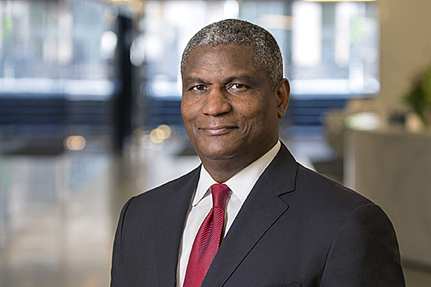By nearly any measure, we are entering an age of significant technological innovation that is transforming every sector of our transportation and infrastructure systems. While dramatic change can be difficult to embrace in any industry, I believe the innovation and technological advancements we are experiencing in transportation today should be viewed as a source of opportunity.
As the introduction of the automobile forever changed transportation in America, the new technologies being developed today, such as automated vehicles and vehicle-to-everything communication, have enormous potential to enhance mobility for all sectors of our population, generate economic opportunity, and create new jobs. However, to fully realize the benefits of these innovative technologies, we must train the next generation of transportation workers – giving them the new skills needed to design, maintain, and operate the transportation ecosystem of the future. These jobs of the next transportation age will require a broad set of skills to address new challenges in such areas as cybersecurity, privacy, and data use.
Fortunately, transportation thought-leaders across the country are equipping and educating our transportation workforce for the jobs of the future, and many of their efforts are highlighted in the articles that follow.
For example, Phillip Washington, the CEO of the Los Angeles County Metropolitan Transportation Authority (Metro) and a longtime champion for workforce development, discusses a “perfect storm” where high demand for skilled workers and an aging transportation workforce are leading to a growing shortage of qualified, skilled professionals. Mr. Washington also outlines the innovative approaches he is taking to ensure Metro can weather this storm: Metro’s Career Pathways Program, E3 Youth Initiative, Teacher Externship program, and dedicated transit school – the SEED School of Los Angeles County. Through these initiatives, I have every confidence that Metro is preparing young people for the new jobs our changing transportation industry is creating.
Similarly, Shailen Bhatt, the President and CEO of ITS America, discusses the “Emerging Leaders Program” developed in conjunction with the 2020 ITS World Congress, which will engage students and encourage young professionals to get more involved in mobility and transportation. The program will target college students around the world and high school students across the US to highlight the expanding scope of intelligent transportation needs and to build interest in the future transportation workforce.
I commend all contributors in this week’s edition for embracing the advances in the transportation industry with equally important innovations in how we think about, attract, invest in, and train our workforce for the future.
Rodney E. Slater
Former Secretary, Department of Transportation
Partner, Squire Patton Boggs





